- europages
- >
- COMPANIES - SUPPLIERS - SERVICE PROVIDERS
- >
- fruit tree
Results for
Fruit tree - Import export
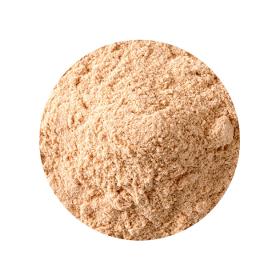
VEHGRO B.V
Germany
"History and Origin Lucuma has been called the 'gold of the Incas'. Lucuma has been cultivated in the Peruvian highlands since 200 AD, when people discovered the caramel-sweet fruit. In Peru, 26 villages are named after this beloved fruit. The lucuma tree grows best at an altitude between 450 and 1000 metres. The tree can withstand drought well, but cannot withstand frost. High humidity is needed to produce the fruit. Lucuma trees only start producing fruit after 5 years and each tree produces up to 500 fruits per year. The fruits are yellow-brown in colour and can weigh up to one kilo each. Processing into Lucuma powder The lucuma tree bears fruit throughout the year, but the main harvest takes place in spring between January and April. When the fruit falls from the lucuma tree it is not yet ripe and the pulp is too hard to be edible. The fruit must be stored under hay until the bitter white latex breaks down and the pulp softens, but even when the fru…"
Request for a quote
VEHGRO B.V
Germany
"Origin Of Tonka beans Tonka beans (Dipteryx odorata) Tonka beans grow on a Tonka tree and are the seeds of fruit that these trees bear. Tonka beans are narrow, black elongated and wrinkled beans with a brown inside. Production process Tonka beans After the seeds have been harvested, they are dried and soaked in alcohol or rum for a day. Tonka beans soaked in rum give a taste of vanilla, almond and rum. That makes them a perfect seasoning of desserts and patisserie. After adding the alcohol, the beans are dried again and a fermentation process takes place. Tonka beans applications Tonka beans are a common ingredient of desserts, the garnish of desserts (ganache), caramel sugar, ice cream or patisserie."
Request for a quote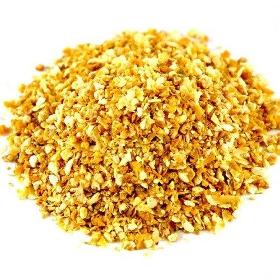
VEHGRO B.V
Germany
"Origin Lemon peel granulate is made from the peel of the lemon. The lemon is a fruit of the lemon tree (Citrus Limonum). The lemon is native to Asia, but is now common around the Mediterranean and America. This lemon peel granulate comes from Chile. Lemon peel contains up to 10 times more essential nutrients than the juice of the lemon. Nutrients and uses The lemon peel granulate contains vitamins A and C and also minerals like magnesium and calcium. In addition, the lemon peel also contains potassium and beta-carotene. The granulate has a sour and fresh taste, however it does not smell as strong as fresh lemon peel. When peeling a lemon, it is important to peel only the part of the peel that is yellow. The white layer underneath contains many substances that taste bitter. The high vitamin C content in combination with the present flavonoid ensure that this product is a healthy addition to any meal. This lemon peel granule can be added to many differen…"
Request for a quote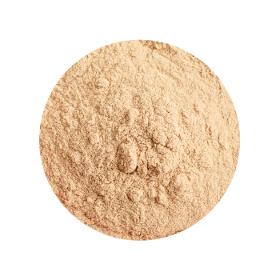
VEHGRO B.V
Germany
"Baobab powder The baobab is the fruit of the baobab tree also called the Adansonia Digitata or monkey bread tree. The last name the tree owes to the many species of monkeys that live off the baobab fruits. The tree can grow very old and is the largest tree in Africa. Not only the fruit is useful for life in Africa. Almost all parts of the tree are useful so it is popularly called ""Tree of Life"". A nice example is that it uses its trunk as a water reservoir. During the rainy season, the monkey loaf tree provides sufficient reserves so that it can survive the dry periods. The tribe is then used by the population as a shop, cattle shed or bus shelter. The fruit has a very high antioxidant content. Baobab powder is also an excellent source of calcium and very rich in vitamins and minerals. After the fruit is processed into powder it consists for about 50% of fiber (pectin) which works as prebiotics. An extraordinary power food<…"
Request for a quote
VEHGRO B.V
Germany
"Indian Waxnuts The soapnut tree (sapindus mukorossi) is a plant species within the family of soap tree plants. The fruit known as ""sea nut"" is traditionally used in India for washing clothes and hair. For washing, the nuts are cracked and the shells are placed in a cotton bag in the drum. The soap is similar to fabric softener. After washing, the clothes are supple and certainly not hard. Soap notes do not release any fragrant substances. Use Soapnuts can also be used as a general household cleaner, animal care, to wash hair and for in the dishwasher. The amount of nuts needed varies from 3 to 7."
Request for a quoteDo you sell or make similar products?
Sign up to europages and have your products listed
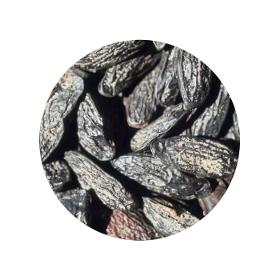
VEHGRO B.V
Germany
"Tonka beans (Dipteryx odorata) Tonkabones grow on a Tonka tree and are the seeds of the fruit that these trees carry. Tonka beans are narrow, black, elongated and wrinkled beans with a brown interior. Once harvested, the seeds are dried and soaked 24 hours a day in alcohol or rum. Tonka beans soaked in rum give a taste of vanilla, almond and rum. This makes them a perfect seasoning for desserts and pastries. After the addition of alcohol, the beans are dried again and a fermentation process takes place. Tonkabones are a widely used ingredient in desserts, the garnishing of desserts (ganache), caramel confectionery, ice cream or patisserie."
Request for a quote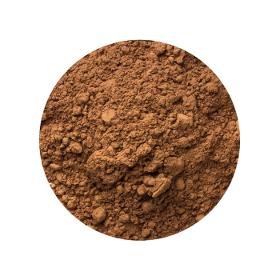
VEHGRO B.V
Germany
"Organic Criollo Cocoa Powder Cocoa powder comes from the cocoa bean, the fruit of the cocoa tree. The cacao tree grows in countries around the equator and produces cacao beans from which, among other things, chocolate is made. To make cocoa powder, cocoa mass from the cocoa bean is used. The mass is pressed under high pressure to produce cocoa powder. Cocoa beans contain more antioxidants than red wine and 3 times more than green tea; cocoa beans are a rich source of minerals. The pods are hand-harvested and selected for the best quality. Our cocoa is also fermented to reduce their initial bitterness. The manufacturing process preserves a significant part of the nutritional value of the beans, without any additives. Criollo Beans Our Cocoa is made from 100% organically grown Criollo Beans. This bean from Africa is known as a rare, high quality bean and is often eaten as a delicacy. The taste is very aromatic and not bitter. Because of these…"
Request for a quote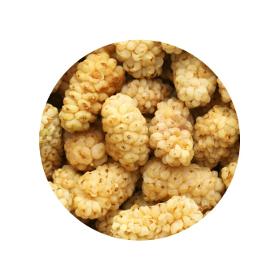
VEHGRO B.V
Germany
"White mulberry plant The white mulberry (Morus alba) is a plant native to China. The mulberry is one of the last trees to flower in summer. The plant has an important value, as it is indispensable for the production of silk. The silkworm is shy and only eats the leaves of this plant. The fruits of the mulberry tree are used for human consumption. Health benefits Mulberries are fat free, low in sodium and are packed with various vitamins and minerals. For example, the mulberry contains vitamins A, B6, C, E, K and the minerals calcium, potassium, magnesium, iron, zinc, copper and phosphorus. It helps to strengthen the eyesight and maintain the blood pressure. Due to the many fibers in the fruit, mulberry makes you feel satisfied quickly. Use of the mulberry You can put dried mulberries through the yogurt or in a fruit salad. You can also add them to a smoothie for extra flavor and nutrients. They are also delicious to eat out of hand or add to a…"
Request for a quote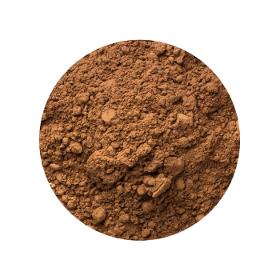
VEHGRO B.V
Germany
"Origin Cocoa Powder Regular Organic Cocoa powder comes from the cocoa bean, the fruit of the cocoa tree. The cocoa tree grows in countries around the equator and produces cocoa beans from which, among other things, chocolate is made. To make cocoa powder, cocoa mass from the cocoa bean is used. The mass is pressed under high pressure to produce cocoa powder. Cocoa beans contain more antioxidants than red wine and 3 times more than green tea; cocoa beans are a rich source of minerals. The pods are hand-harvested and selected for the best quality. Our cocoa is also fermented to reduce their initial bitterness. The manufacturing process preserves a significant part of the nutritional value of the beans, without any additives. Forastero Beans Caocoa Powder Regular Organic comes from the Forastero cocoa tree. Originally this cocoa comes from the Amazon, but now it mainly grows in West Africa. There are 30 to 40 caco beans per pod on this tree. This cocoa involves…"
Request for a quoteResults for
Fruit tree - Import exportNumber of results
10 ProductsCountries
Company type
Category